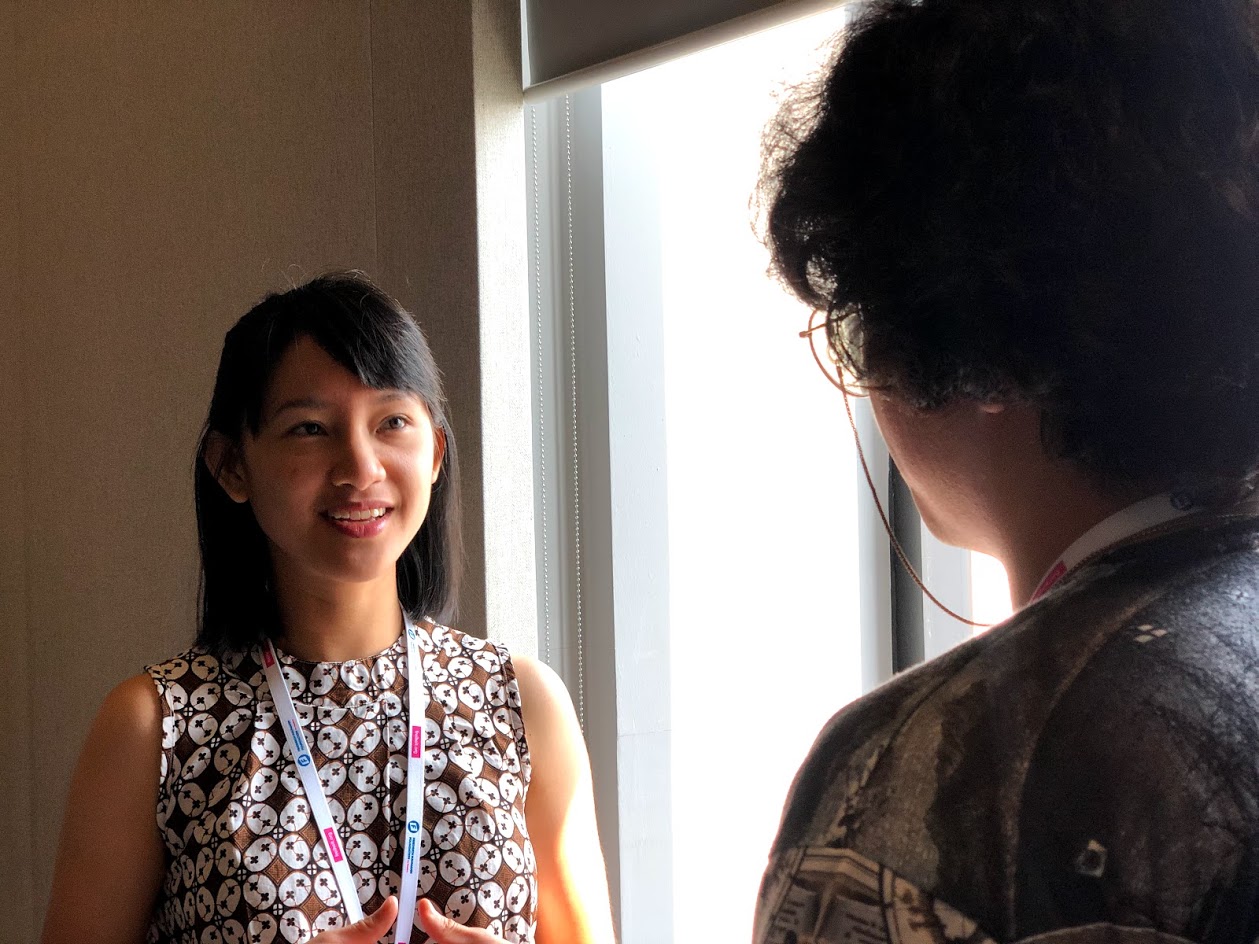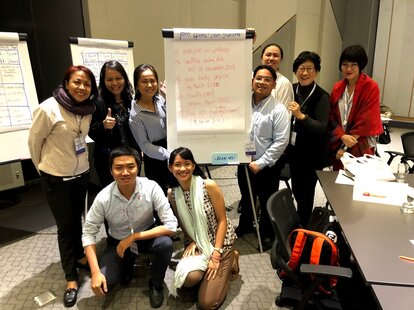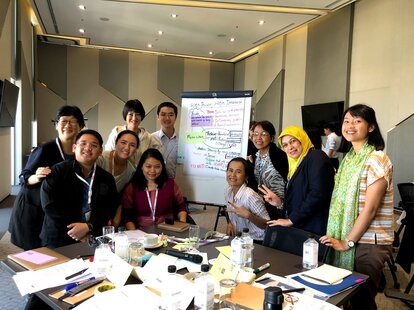International Academy for Leadership
Acknowledge, Advocate, Ask: What Goes First?

A small crowd of people are asked to choose what order of steps they would take when trying to influence someone.
They were free to form subgroups consisting of those with whom they felt are like-minded. Three were formed at the start:
“Start with ‘advocate’, then ‘acknowledge’, and end with ‘ask’. You need to be straightforward with your message and put that up front first. After that you re-confirm what you know about them by ‘acknowledging’. Only then you can ‘ask’ about their thoughts on your idea. The point is to simply put your title in bold at the very first page!”
“’Acknowledge’ first. Make sure you get their nod. And since you are a curious person and that needs to show, you then ‘ask’ to inquire further. It’s quite as if asking is an option, since digging information about them is less important than them getting your details. After that, you may ‘advocate’.”
“First things first, ‘ask’. Find out about their position and interest, and to what extent you both relate so far. Then, ‘acknowledge’. Make sure you really do know what they’re talking about. Let them know that you’re not asking for the sake of asking. Be genuine. Finally, ‘advocate’. Get your message out after you know your space.”

The twenty-five participants discuss why they choose what they chose. Our facilitator then gave us extra time to be sure of our places. A few changed positions. A new one even came up: “Advocate first, then ask, and then advocate!”
We come from various backgrounds, but have one drive in common—that of the value of freedom. We teach, we research and advocate based on it, we hold public discussion forums, we meet our respective stakeholders, we write. How do we ensure the message that we deliver through different mediums is passed on accordingly?
Not only do we come from varying organizations and professions, but also local backgrounds throughout the Southeast Asian region. The present participants were alumni of the international leadership academy in Gummersbach, a workshop where we exchanged knowledge and experience on highlighting the importance of freedom in the different fields that we do. At this Regional Alumni Network workshop in which we got the chance to explore more of these, practical exercises and strategy games were our means of learning. This time the excitement was different, because it was the second regional alumni meeting after the first one in Cambodia in mid-2019, which means friendship has been built among the participants. A friendship between a lecturer in Vietnam, a human rights activist from Myanmar, a think tank outreach strategist in Indonesia—and many more!
As we meet, share, play, and discuss, we realize that in disseminating our ideas, a target audience is always in place. Are we talking to the right person, in the right way, to ensure what we produce doesn’t get misplaced at the end of the day?

“You are trying to get to the other end. You would like them to listen to you. Before you tell them about your cause and advocate, do ask. Are they interested? If so, to what extent? If it turns out that your causes and theirs have contrasting concerns, would you still be able to modify things? How important is it?
“Asking is key. And when you find out about them, obviously a nod wouldn’t be enough. Acknowledge. Confirm and see if you grasp their values well.
“And once you see that you’re on track in your understanding about them, it’s then your turn to tell them about why you’re approaching them. Advocate. Let them know why all of that introduction was that important, and how it relates to what you’re advocating for.
Do make sure that you care not only about what you do (don’t go straight to advocacy!), but what they do in relation to your causes. As they say, ‘They won’t care how much you know until they know how much you care!’”
*This contributed article is written by the Indonesian Delegate for IAF Seminar, Ms. Patricia Kandou who works as Outreach and Event Officer of Center for Indonesian Policy Studies (CIPS)